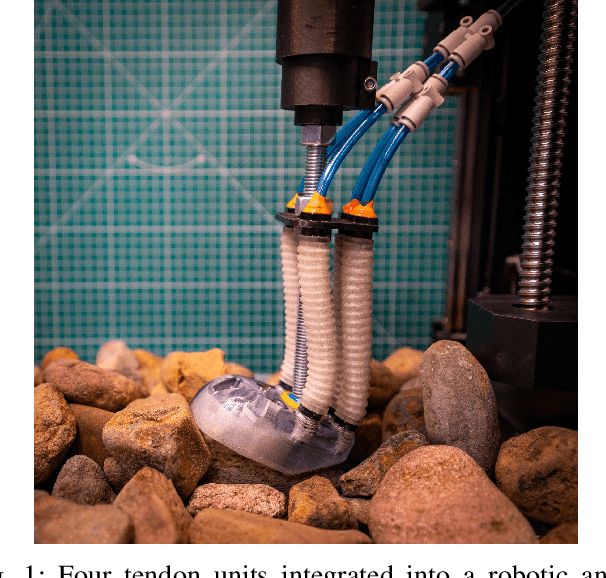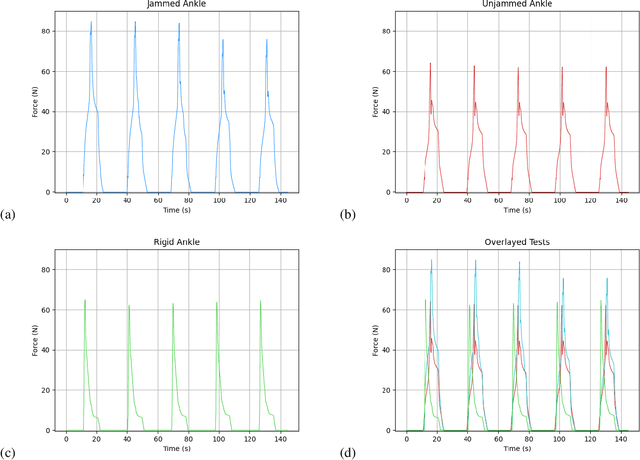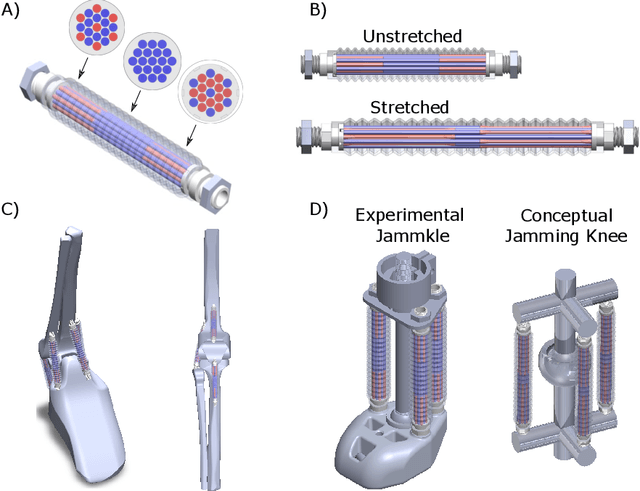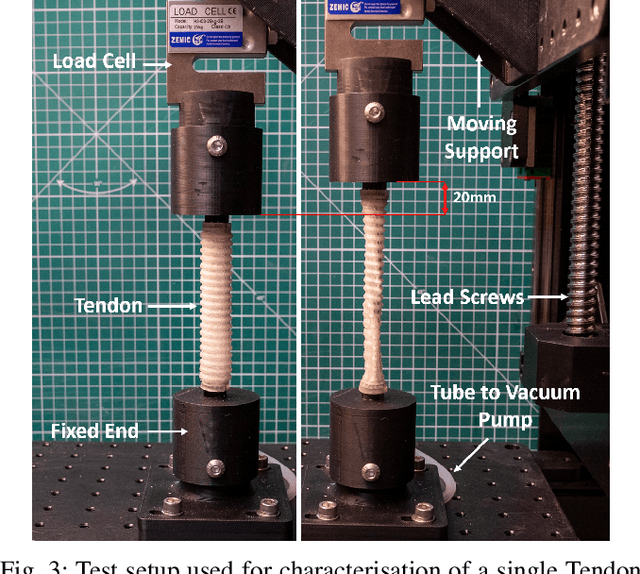Jammkle: Fibre jamming 3D printed multi-material tendons and their application in a robotic ankle
Paper and Code
Sep 13, 2021



Fibre jamming is a relatively new and understudied soft robotic mechanism that has previously found success when used in stiffness-tuneable arms and fingers. However, to date researchers have not fully taken advantage of the freedom offered by contemporary fabrication techniques including multi-material 3D printing in the creation of fibre jamming structures. In this research, we present a novel, modular, multi-material, 3D printed, fibre jamming tendon unit for use in a stiffness-tuneable compliant robotic ankle, or Jammkle. We describe the design and fabrication of the Jammkle and highlight its advantages compared to examples from modern literature. We develop a multiphysics model of the tendon unit, showing good agreement with experimental data. Finally, we demonstrate a practical application by integrating multiple tendon units into a robotic ankle and perform extensive testing and characterisation. We show that the Jammkle outperforms comparative leg structures in terms of compliance, damping, and slip prevention.
 Add to Chrome
Add to Chrome Add to Firefox
Add to Firefox Add to Edge
Add to Edge